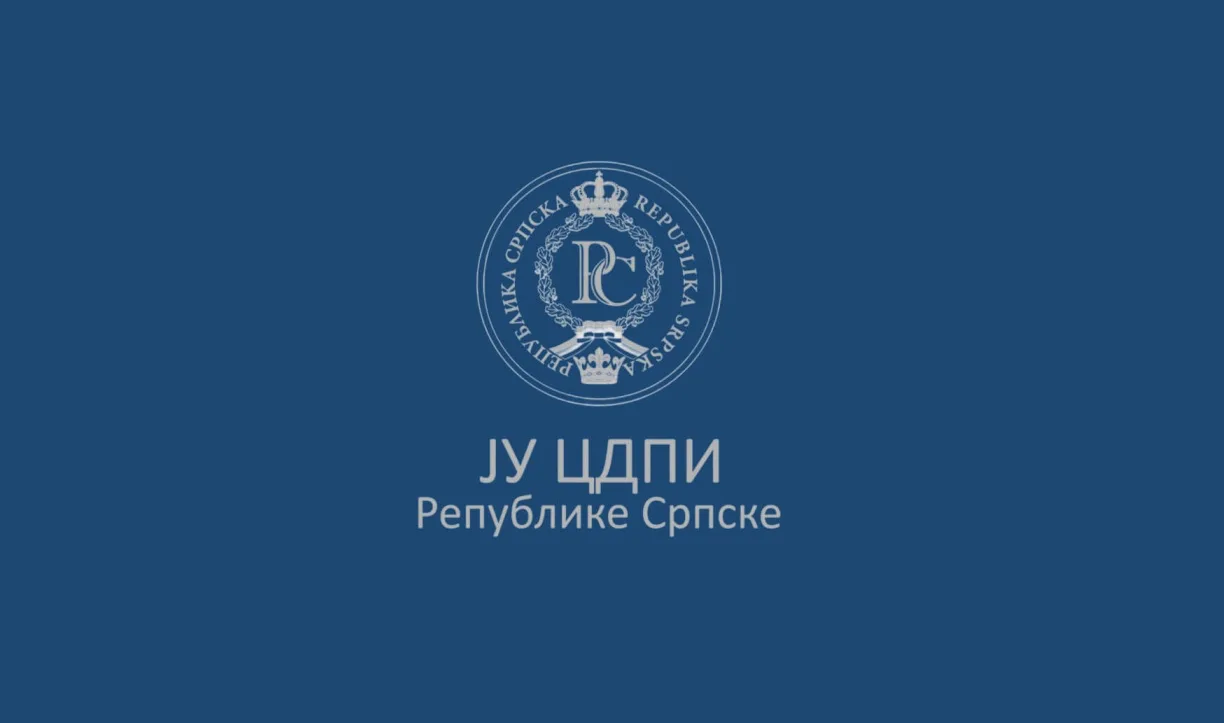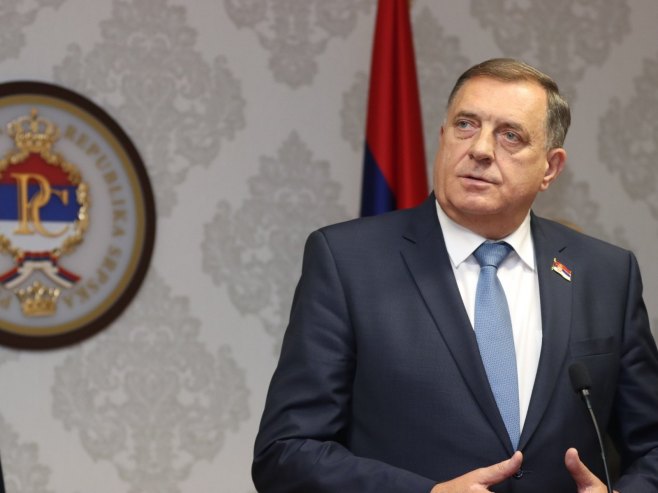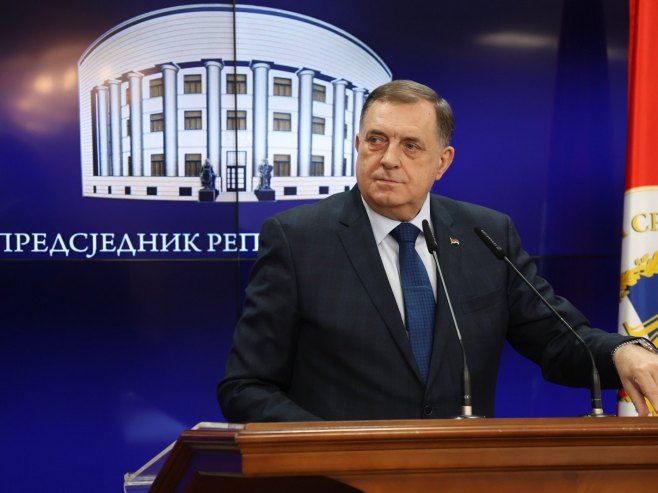The Center for Socio-Political Research of the Republic of Srpska has, in the recent period, pointed out some of the harmful forms of action against the Republic of Srpska and the Serb people as a whole, which mainly have their roots in certain interests of the political West.
In times characterized by global phenomena, embodied in the process of intense recomposition of forces on a global scale, it is also noted that the Balkan region is again, to a certain extent, in the focus of international attention and activities. The Republic of Srpska, in its post-Dayton period, is faced with constant coordinated efforts to reduce its competencies and disempowerment by the “political Sarajevo” and certain Western countries, which logically results in the complete nullification of its institutional capacities, and ultimately, territorial-administrative disintegration. The latest in this series of moves is seen in the rigged court process against the President of the Republic of Srpska and the acting director of the Official Gazette, initiated based on decisions by the German diplomat Christian Schmidt.
Unfortunately, this treatment of the Republic of Srpska, its institutions, and elected political representatives is not an isolated case but part of a broader scenario. The instigation of disorder in the days following the elections in Serbia, and attempts to sow discord between the Serb people in Serbia and the Republic of Srpska, through baseless accusations and the malicious categorization of the “Serbs across-the-Drina” as a factor of instability, are illustrative examples of the previous assertion.
Such theses have synchronously started to appear in the narrative of certain opposition political entities in Serbia, and as well in some foreign media and officials within the European Union. These claims were simultaneously accompanied by unconfirmed allegations of 40,000 voters from the Republic of Srpska, as well as other parts of Serbia, which were organized for electoral engineering in Belgrade. Although there were organized voters from other regions, the hysteria deliberately provoked about voters from the Republic of Srpska who had the right to vote in the Serbian elections was massively used by the press, both in Serbia and in Western Europe, especially in Germany and the United Kingdom. All this was followed, on social networks and in some media, by autochauvinistic outbursts of hatred by a number of actors towards voters from the Republic of Srpska who had the right to vote in the Serbian elections. Certain opposition politicians and activists in Serbia have joined in this behavior, continuing to publicly attack citizens of the Republic of Srpska for voting in Belgrade.
Given that Serbs from the Republic of Srpska and Bosnia and Herzegovina have been identified by certain political actors in Serbia as a “problematic” factor in these elections, it is necessary to oppose these narratives and unsubstantiated claims with statistical reality. Namely, according to the data of the Commissioner for Refugees and Migration of the Republic of Serbia, as of 2022, 179,302 citizens of Bosnia and Herzegovina have dual citizenship of Serbia and BiH.
The Electoral Law of the Republic of Serbia states that only those persons who have registered residence in the Republic of Serbia can vote in the elections. This implies that all those who have citizenship and a passport of the Republic of Serbia cannot vote unless they also have a residence, i.e., a personal ID card of Serbia. According to the officially presented data, close to 20,000 citizens of the Republic of Srpska have personal documents and residence in Serbia.
In the whole of BiH and the Republic of Srpska, 19 polling stations were planned for the elections in Serbia, with a total of 13,274 registered voters. Of this number, 11,312 people voted in the mentioned elections. In Bijeljina, which is geographically close to Belgrade, people with the right to vote registered and voted in Bijeljina itself. At polling station No. 14, Vuk Karadžić Primary School, there were 1,099 registered, and 973 citizens voted, while at polling station No. 13, also in Vuk Karadžić Primary School, there were 1,017 registered, and 855 citizens voted. This is an interesting indicator.
After all calculations and analyses, it is found that just under 7,000 voters from the Republic of Srpska remained unregistered for voting at polling stations in BiH and could potentially vote in cities across Serbia, depending on where they have registered residence.
Even under the hypothetical assumption that almost all 7,000 of the mentioned persons who were not registered to vote at polling stations in BiH had a residence in Belgrade, and hypothetically all voted for one political option, it amounts to 0.18% of the votes at the republic level, which is below the level of 0.24% held by Čedomir Jovanović’s list, or 0.80% at the local level of the city of Belgrade, which is half less than the percentage held by the list of Saša Radulović and Boris Tadić at 1.56%.
Accordingly, the impact of voters from the Republic of Srpska who voted in the elections in Serbia on the final outcome of the elections, compared to the votes from Serbia itself, is without any factual significance. Ultimately, the election results in Serbia are exclusively the will of the voters from Serbia itself.
On election day, several thousand citizens of the Republic of Srpska undoubtedly personally voted in Belgrade. It is also unquestionable that this number is significantly lower than the 40,000 used in this malicious campaign. At the same time, the question arises as to why it is really a problem that Serbs from the Republic of Srpska, who meet the legally prescribed conditions, voted in Serbia itself? Like the rest of the Serbdom, the Serb population from the Republic of Srpska sees Serbia as its political homeland and harbors both love and a sense of duty towards it. The misuse of such a relationship towards Serbia and an extremely degrading attitude towards it serve exclusively the projects of creating new internal divisions within the Serbian people, according to the borders established by the enemy.
The episode with the elections in Serbia clearly illustrates that pressure on Serbia and the Serbs is being attempted through the fragmentation of the collective Serb political scene and national fabric. Western countries, which have voluntarily profiled themselves as geopolitical adversaries of the Serb people, feel the growing pressure of a world moving towards multipolarity. Ukraine, Palestine, and Taiwan emerge as conflicts in which the triumph of the political West is not guaranteed, on the contrary, in some of them all its weaknesses are clearly exposed to the global public. Problems of deindustrialization of Europe, demographic regression, mass migrations, internal ideological conflicts, and increasingly pronounced characteristics of totalitarianism are only adding to those previously highlighted. The area inhabited by the Serb people appears as an opportunity where a victory of the Western hegemon can still be achieved, of course, at the expense of the Serbs’ own interests.
To achieve this victory, it is necessary, among other things, to impose Christian Schmidt as the high representative and completely negate the existence of the Republic of Srpska. It is in this context that we can view these targeted attacks on voters from the Republic of Srpska, with obvious exaggeration of their impact on the final result. In Montenegro, it is necessary to prevent any significant form of political manifestation of Serbian interests, while Serbia must be forced to accept the independence of the self-proclaimed Kosovo.
Contrary to media and political narratives of opposing centers of power that try to implant a narrow view of reality in the consciousness of the Serbs, the true reality testifies that Christian Schmidt is not a high representative and that the attempt to impose a colonial governor and administration cannot be accepted. Historical and political reality forms the Serbian perspective and stance, reflected in several key facts:
- That the Dayton Peace Agreement must be preserved as a guarantor of peace and stability.
- That Kosovo and Metohija are an integral and inalienable part of the Republic of Serbia.
- That the Serbian people in Montenegro are an irreplaceable factor in deciding who will constitute the state’s administrative and executive apparatus.
- That there are no Bosnian Serbs, Montenegrin Serbs, Kosovo Serbs, Serbian Serbs, and similar categories.
- That there are only Serbs, members of the same nation, regardless of where they are located, their denomination, and the artificial borders established by the enemies.
Accordingly, the creation and encouragement of new artificial divisions within the Serbian people can only be seen as an expression of malignant autochauvinism internally, while in the context of realpolitik and geopolitical relations, such behavior must be understood either as amateur dilettantism or as a subservient mentality and obedience to foreign geopolitical interests.









